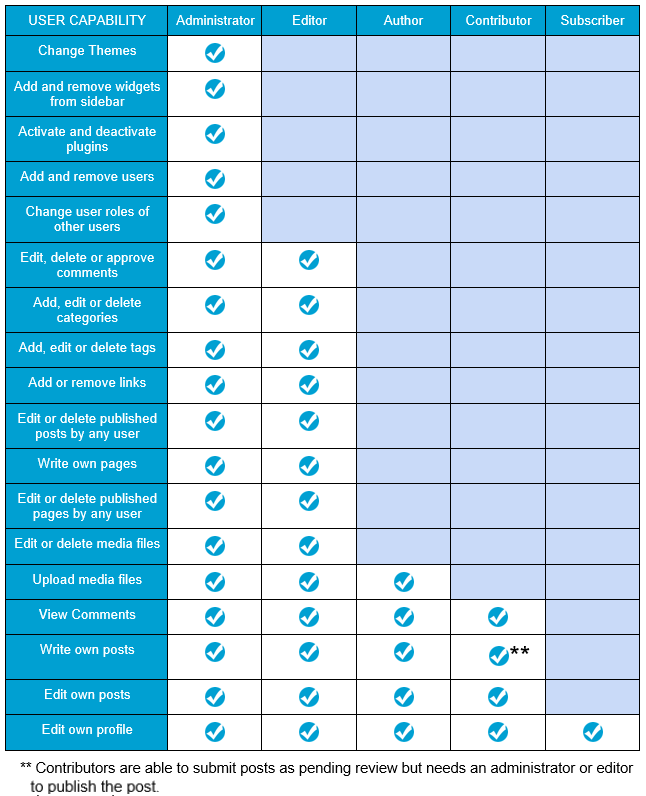UCL Blogs: User roles explained
UCL Blogs user roles
When you set up a blog you have the ability to assign and control what other users can do in the blog depending on the tasks you want each user to be responsible for.
The five roles you can assign users on a blog are: Administrator; Editor; Author; Contributor; and Subscriber.
There are two extra roles if you use a class blog: teacher and student.
Deciding which role to assign bloggers is a balance between:
- How much responsibility you’re comfortable with assigning the user
- School and District guidelines
- Providing them with an environment that’s motivating
You also need to consider carefully what role you assign other users since Administrators are able to remove other users, including you, and editors can delete content.
STANDARD USER ROLES
The five roles a user can be assigned in decreasing level of responsibility are:
- Administrator – can do everything including complete power over posts, pages, plugins, comments, choice of themes, imports, settings, assign user roles and are even able to delete the blog.
- Editor – is able to publish posts/pages, manage posts/pages, upload files, moderate comments as well as manage other people’s posts/pages.
- Author – can upload files plus write and publish own posts.
- Contributor – can write own posts but can’t publish them; instead they are submitted for review. An administrator or editor then reviews and publishes their posts.
- Subscriber – can read comments and write comments.
Here is a summary of their differences based on User Capability:

Feedback
We are continually improving our website. Please provide any feedback using the feedback form.
Please note: This form is only to provide feedback. If you require IT support please contact the IT Services Help desk. We can only respond to UCL email addresses.
 Close
Close

